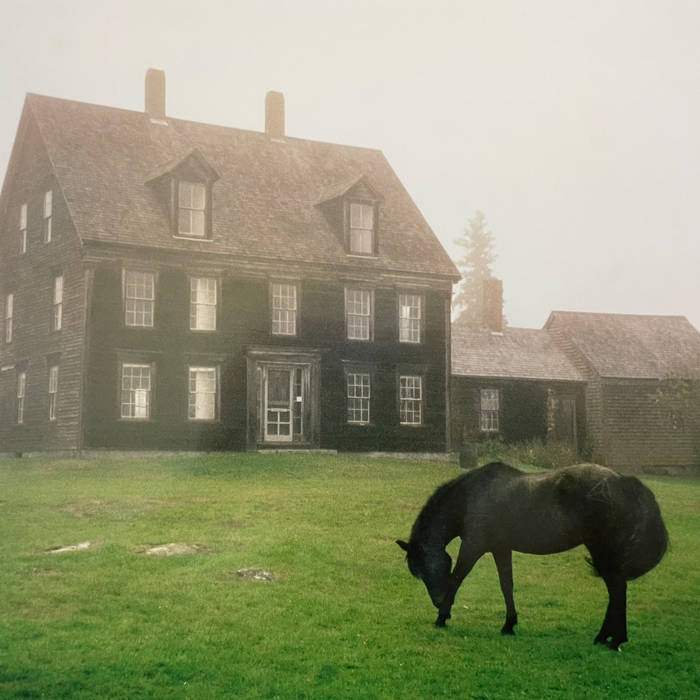After a series of successful singles and EPs, Lutalo released their debut album, The Academy. As an unfortunate critic who judges books on their covers, I was first drawn to this album for its artwork depicting an ominous dark horse and farmhouse looming in the fog—as it turns out, a fitting encapsulation of Lutalo’s sound. Reminiscent of artists like King Krule and Big Thief, the project consists of dampened shoegaze effects and folk-inspired guitar. Lutalo’s writing strings it all together resulting in something deeply haunting, conveying an aching nostalgia. This theme of ruminating carries throughout the tracks, the album serving as a time capsule of Lutalo’s childhood reaching into young-adulthood. It is the perfect first full-length release to establish Lutalo’s identity in the music-sphere.
The album opens with the track Summit Hill, the last single to be released before the full 12 song project. It is written in reference to a neighborhood in St. Paul, Minnesota, The Academy, being where Lutalo attended school. The layered guitar in this track twinkles, giving the whole scene a dream-like quality. This, with the repetition of “when it comes then it comes” suggests an introspective look into the histories that make us— a promise of a future that will one day come. It’s a soulful exposition into the journey that follows.
The pace of the album quickens significantly by the third track, Ocean Swallows Him Whole. I’ve had this track on repeat since its release as a single in June, but now that it’s incorporated into the story of The Academy, it holds greater depth.
With heavier instrumentals, Ocean Swallows Him Whole is written to a “you”— a friend or romantic partner of the past? Or is it Lutalo’s self, referencing their time living in New York? On interpretation, it describes this figure’s attempt to leave their hometown and the past that comes with it for New York City, but is “already gone”. Towards the beginning, Lutalo writes longingly for the return of this unnamed figure despite the relationship’s inevitable challenges, but by the end has come to terms that they have truly left, the previous relationship they had, irreparable. This song accurately captures the album’s wider concept: revisiting the past with the knowledge you have now.
Another track that stood out to me was Haha Halo. Opening with a melancholic guitar solo, this track drops the higher energy that previously dominated. Throughout the album, the more “bouncy” effects are replaced with deeper, more aggressive soundscapes exhibiting a metaphorical maturity over time that eventually settle into this solemn song. Other than the more obvious written “halo” there seems to be reference to death or someone from Lutalo’s past, them singing “The air grew cold and wind starts to shift” along with “As her light blew out”. The track is chilling, yet a glimmer of hope rings through, accentuated by the repeating of “God made me softly I’ll be good.” It’s delivered as a sort of internal mantra. There is a sense of meditative spirituality within Lutalo’s discography, but it perhaps presents itself more clearly here.
Though Lutalo describes the album as chronicling personal lessons they’ve learned, it invites its audience to reminisce along. It beats with a universal heart that is easy to relate to— to get attached to (or perhaps I’m just projecting my own Midwestern childhood nostalgia).
From gazing longingly out of the school bus window to living in your first dingy apartment eating microwaveable dinners, The Academy captures youth in its fullness and rawness. This album is worth the listen for anyone who finds themselves looking into their past.
Lutalo Jones has created a time machine and the future looks promising.


